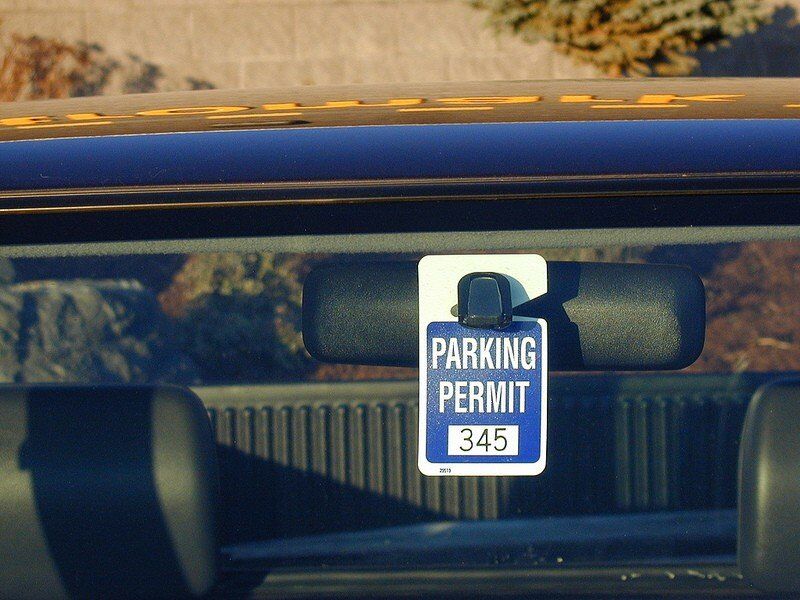Parking Permit Overselling – Striking the Right Balance

Parking permit overselling is a common practice in the industry. While it may not be popular among the general public, it is fundamentally required for efficient use of parking spaces. Generating the most revenue from each parking space can translate into keeping prices lower for all permit holders. There is a fine balance between maximizing your spaces and giving permit holders a place to park.
There are a few things to keep in mind whether you are currently overselling your parking permits or thinking of adopting these practices. It is essential to strike the right balance.
Consider Industry Benchmarks as a Starting Point
When you look across the parking spectrum, the industry standard is 20-40% over sales. This depends on the specifics for a lot and its permit holders. It would mean that a 1000 space lot would have as many as 1400 permit holders. Other sources suggest that the rate is higher and quote ratios of 1.8 to 2.0 permits sold per space. This could mean two permits for every space or 2000 in the case of the 1000 space lot.
Another standard to keep in mind is to target your occupancy rates of about 90-95%.
So, how do you use these benchmarks to determine your oversell rates? You start by taking a closer look at your users and your lots.
Understand Your Users
There are a few days when every permit holder will be looking for a parking spot at the same time. People are always away on sick leave, vacations, working from home, have non-traditional working hours, or decide not to drive on certain days. For a campus model, students have variable schedules, exam days, field trips, and staff have sabbaticals.
Most of the time, you could take the list of permit holders for any given lot and put them into clearly defined categories. For a campus example, a lot might accommodate staff, residents, and commuters. Each category of the user has different requirements for the lot. They will inevitably use it at different times and for different lengths of time. Different oversell rates for different permit categories are common. Take for example the scenario for Western Carolina University which outlined its oversell rates in its Master Plan. They recommended the following for permit categories (summarized and abbreviated):

Evaluate Each Lot Independently
Not all lots should be treated the same when it comes to permitting overselling. Larger lots obviously allow for a higher percentage of overselling. There is generally more variability built in with a larger user base. Also, consider that lots with high turnover can oversell more parking permits than those used by people for the day.
As part of your overall strategy, you may also want to review lots with reserved stalls. Generally, these spaces don’t accommodate overselling. They do however come at a price premium which might make up for the lack of overselling. However, you can monitor your reserved stall lots and note a high level of vacancy during certain days/times. You could consider converting them to unreserved to allow for overselling. Another possibility is to make them accessible to other permit holders during certain hours.
Monitor and Adjust
Setting oversell rates might have just as much to do with your intuition as it does with industry best practices. One of the best tools you can use to guide your decisions is your parking data. The more you can collect on occupancy, length of occupancy, and space vacancy, the more likely you are to set out an appropriate overselling model for your users. Continually monitor the data and adjust oversell rates accordingly. Things can change from year to year or even term to term on campus, so tracking and monitoring data are important. An LPR system might be your best friend when it comes to accumulating that data.
Deal with Unexpected Situations
In 2014, Simon Fraser University wrote about the implications of permit overselling and unusual circumstances in their parking blog. A labor dispute between the province meant that there were as many as 300 education students and faculty who were usually spending time in the community teaching or learning were now on campus. Anticipating these “worst-case” scenarios and documenting how you’d manage the situation in advance will go a long way if it really does happen.
Managing Communications
You don’t have to search far to see complaints about overselling making lots full and leaving permit holders without a space to park. Few parking management organizations are immune to public ire about parking availability, and overselling can be a source of frustration. Be prepared to communicate clearly why you oversell, how it benefits permit holders, the financial implications, and how it impacts permit fees. Also be prepared to educate your permit holders, if for example, you’re hearing lots of complaints that users can’t find a space in Lot M, remind them that their permit is also good for Lot Q which may not be as close to their destination, but is available. Your communications department can help with your goal to communicate clearly, often, and with as much information as you can share.


